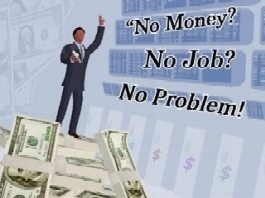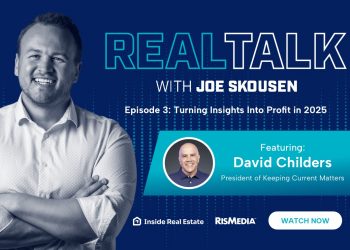 RISMEDIA, June 15, 2009-National Short Sale Center, a large short sale company, has warned homeowners of the rise in foreclosure and loan modifications scams. The FBI is currently investigating more than 2,100 mortgage fraud cases-a 400 percent increase from five years ago. The fraud includes sale-leasebacks, quitclaims, stripping homeowner equity and misleading homeowners into signing over deeds.
RISMEDIA, June 15, 2009-National Short Sale Center, a large short sale company, has warned homeowners of the rise in foreclosure and loan modifications scams. The FBI is currently investigating more than 2,100 mortgage fraud cases-a 400 percent increase from five years ago. The fraud includes sale-leasebacks, quitclaims, stripping homeowner equity and misleading homeowners into signing over deeds.
“As new legislation aims to help troubled Americans avoid foreclosure, a growing number of con artists are taking advantage of unsuspecting homeowners,” said Travis Hamel Olsen, president of National Short Sale Center. “The fraud usually comes through in the fine print, but foreclosure rescue teams and highly suspect scammers are basically taking homes through a variety of means, resulting in foreclosure and eviction.”
Dozens of fake websites mimic the fonts and layouts of government websites that are designed to help struggling homeowners modify their mortgages. Some unsuspecting homeowners have fallen prey to unscrupulous companies that charge up to $7,000 before disappearing.
“Considering that there could be more than 3 million foreclosures starts in 2009, it is safe to assume that frauds and scams will affect a large number of American homeowners,” said Olsen. “In fact, more than 50 percent of homeowners working on short sales with NSSC have been approached by circumspect individuals or companies.”
With 20 percent of the nation’s homeowners underwater, the government is introducing new legislation aimed to steer struggling homeowners toward short sales. The government’s new plan will pay a servicer $1,000 for completing a successful short sale, it will pay the borrower $1,500 to assist with relocation expenses, and it will pay second-lien holders who release their claims up to $1,000.
The government is prosecuting several mortgage scam companies, but new ones pop up every day. The government’s Fraud Enforcement and Recovery Act of 2009 allocates $500 million to the FBI, Justice Department, Secret Service and Postal Service to combat mortgage fraud.
“Under no circumstances should anybody be paying an upfront fee to complete a short sale,” said Olsen. “Unscrupulous companies use myriad ways to take advantage of unsuspecting homeowners.”
Many struggling homeowners are confused about short sales and fall for deceptive offers, including phone calls, letters, advertisements and e-mails (also known as phishing).
“Usually if the deal seems too good to be true,” cautioned Olsen, “then it probably is.”
For more information about National Short Sale Center, please visit: www.ShortSaleCenter.com.










